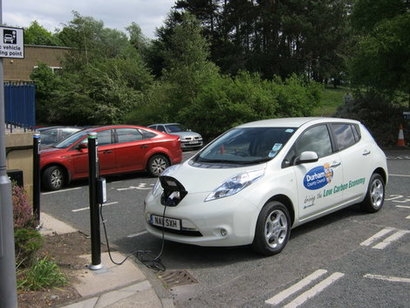
The specialist energy consultancy is warning that impatience among the public, with regard to the time it takes to charge an electric vehicle (EV), may require the Government, charging infrastructure providers and car manufacturers to launch a public awareness campaign about when and how owners of electric cars are likely to charge their vehicles.
Baringa’s new report, Is the UK ready for electric cars?, reveals that more than a third (36 percent) of people say that the battery taking too long to recharge is a key reason not to consider buying a 100 percent electric car. On average, people say they are willing to wait a maximum of just 13 minutes to fully charge an electric car at a service station. This is far shorter than the 50 minutes it typically takes a standard 50kW rapid charging point, and more in line with what would be possible from a 350kW ultra-rapid charging point.
However, the report notes that this impatience barrier could be due to a major misconception around how electric cars will be charged. Just under half (48 percent) of people say they are unlikely to buy a 100 percent electric car because they are concerned about not being able to travel far enough with one charge to reach the next charging point. But the average car journey in the UK is just 8.7 miles and most existing 100 percent electric cars have a range of around 100 miles, with newer models able to travel even further on one charge. This means that the majority of electric car journeys could be completed without the need to recharge.
“Concerns about charging are often cited as a barrier to further growth of the electric car market, and our research shows that there is considerable work to be done” said Oliver Rix, Partner in Energy & Resources at Baringa Partners. “As a first step, the Government, charging infrastructure providers and car manufacturers urgently need to work together to correct the misconception drivers seem to have about how reliant they will be on public charging infrastructure. Most journeys are far shorter than the average range of an electric car, so there will be little need to charge at service stations or other public stopping points. Instead, the majority of people will charge their cars at home most of the time”.
Mr Rix added that improvements to public charging infrastructure are still important and that, given people’s stated reluctance to wait for long to recharge an electric car, ultra-rapid chargers should certainly be considered, particularly for the motorway network, and for areas without off-street parking where drivers may not be able to charge at home.
Technological improvements leading to bigger, lower cost batteries could reduce dependence on chargers, and different pricing models – in particular the option of paying a bit less but waiting a bit longer - are also likely to impact consumer behaviour, Mr Rix said.
“Rather than relying on assumptions about how people will use electric vehicles, it’s vital that policymakers consider how behaviour may change and what an electric future will really look like.”
For additional information:

